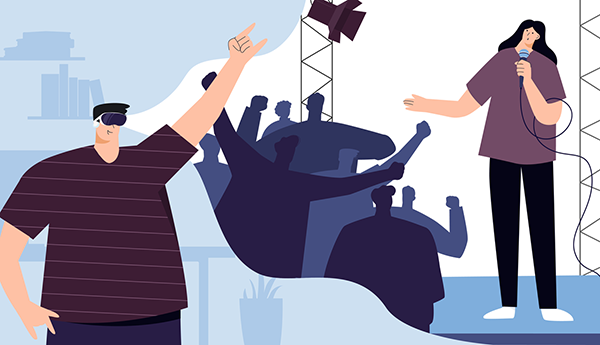What can be done to save live music?
Last August, I wrote a blog expressing my concerns about the state of live music in New Orleans: Summers in New Orleans are always the worst because it’s blisteringly hot (and just getting worse) and the city isn’t swarmed with tourists like it is most of the year.
When OffBeat started, one of the things we did right away was to distribute the magazine in every hotel and motel in the area, because tourists had always been told that New Orleans had great live music, but had no way to promote local music to visitors. OffBeat gained a reputation in the local music scene thanks to the front desk staff, bellhops, and concierges at hundreds of lodgings around the city who welcomed OffBeat into their lives because OffBeat promoted local music and musicians and made their jobs easier.
Well, it’s the tourists. Venues in the Quarter and on Frenchmen Street suffer when the city loses visitors. In fact, some venues close for at least part of the summer (e.g. The Maple Leaf Bar). Sometimes bands don’t play because the venue can’t afford to pay them. In places like Frenchmen Street, venue owners can’t afford to pay bands, so they may have to do duos or trios.
Another problem is that there is a significant generational shift: younger generations don’t go out to listen to live music like they used to. It’s become too easy to experience music on your phone or tablet without having to leave the house. (This article is an interesting read for anyone interested in music.)
Here’s another issue I’ve noticed recently: Virtual reality content creators are making amazing music content for products like the Meta headset. I was talking to my daughter who has a headset, and she told me that if you buy the headset, you get some amazing content. One of them is being able to sit in the front row with other audience “members” at a concert event and enjoy an amazing “live” concert. Of course, this kind of content will be very expensive (at least $100, which is certainly cheaper than going to an actual concert). But if you can afford the headset, you can probably download at least some of that content. And we all know it will get even cheaper over time.
The adoption of VR equipment and content won’t happen overnight, but it will happen sooner than we think.
So what can musicians and venues do to preserve and survive live performances? This requires going beyond simply consuming content on our phones and tablets to thinking more seriously about the impact technology has on the survival of live music.
It’s true that younger generations don’t go out to experience live music the way Baby Boomers and Gen Xers did, because it’s too easy to see live music without leaving the house. Cell phones and computers have replaced the actual experience of live music.
So it’s not just the heat and fewer tourists in the city that’s affecting the live music scene: live music is now a rapidly growing technology, being embraced by audiences who once traveled out to hear live music on a regular basis, and the impact will be especially noticeable among younger audiences.
While this may not have a huge impact in the short term, it will undoubtedly have a negative impact on the presentation and attendance of live music in the future. And it will come sooner than you think. How do we maintain the excitement, audience participation and “connection” between band and audience at a live music show in the future? Venues are already seeing a big change in the way people go to see live entertainment. How do we help audiences see the benefits of experiencing music live instead of using technology? We’d love to hear your thoughts and ideas to make live music more appealing. Drop us an email. [email protected]!

